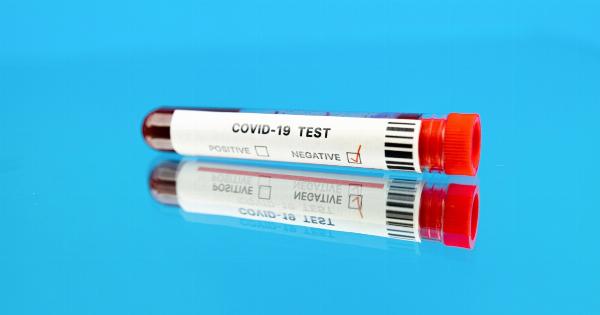Trying to conceive can be an exciting yet nerve-wracking time for many couples. The anticipation of a potential pregnancy can leave you eagerly awaiting the arrival of that positive pregnancy test.
However, it’s important to understand that timing plays a crucial role in accurately determining whether or not you are expecting. In this article, we will explore the best time to take a pregnancy test and factors that may influence the accuracy of the results.
Understanding the Menstrual Cycle
Before delving into when to take a pregnancy test, it’s essential to have a basic understanding of the menstrual cycle. The typical menstrual cycle lasts about 28 days, although it can vary from woman to woman.
The cycle is divided into three main phases: the follicular phase, ovulation, and the luteal phase.
The follicular phase begins on the first day of menstruation and lasts until ovulation. During this phase, the body prepares for potential pregnancy by releasing follicle-stimulating hormone (FSH) to stimulate the growth of follicles in the ovaries.
Ovulation, the most fertile period of the menstrual cycle, occurs approximately 14 days before the start of the next menstrual period.
During this phase, a mature egg is released from the ovary and travels through the fallopian tube, ready to be fertilized by sperm if present.
The luteal phase follows ovulation and lasts until the next menstrual period. If fertilization does not occur, the lining of the uterus sheds, resulting in menstruation.
When to Take a Pregnancy Test
The timing of a pregnancy test depends on various factors, including the length of your menstrual cycle and the sensitivity of the test you are using.
Most at-home pregnancy tests work by detecting the presence of a hormone called human chorionic gonadotropin (hCG) in urine. hCG is produced by the placenta after an embryo implants in the uterus.
While the anticipation may be intense, it’s generally recommended to wait until at least one week after a missed period to take a pregnancy test.
Taking the test too early may result in a false negative, as hCG levels may not be high enough to be detected. However, if you suspect you might be pregnant and cannot wait for a missed period, certain early detection tests claim to provide accurate results as early as a few days before your expected period.
If you have irregular periods or are unsure when to expect your next period, it may be helpful to track your ovulation using methods such as basal body temperature charting, ovulation predictor kits, or monitoring changes in cervical mucus.
By identifying when you ovulate, you can pinpoint the ideal time to take a pregnancy test based on a known timeline.
Factors Affecting Test Accuracy
While the timing of the test is important, several other factors can influence its accuracy:.
1. Test Sensitivity
Each pregnancy test on the market has a stated sensitivity level, which indicates the minimum amount of hCG the test can detect. More sensitive tests can detect lower levels of hCG, thus providing earlier and more accurate results.
However, these tests are often more expensive than less sensitive ones. Understanding the sensitivity of a particular test can help you choose the right one for your needs.
2. Timing of Implantation
After fertilization, the embryo takes several days to travel through the fallopian tube and implant itself into the uterine lining. Implantation typically occurs 6-12 days after ovulation.
If implantation takes place later than usual, hCG production may be delayed, resulting in a false negative if you take a pregnancy test too early.
3. Human Chorionic Gonadotropin (hCG) Levels
hCG levels vary greatly from woman to woman, and even pregnancy to pregnancy. Some women have naturally low hCG levels, making it more challenging to detect early pregnancy.
Additionally, hCG levels typically double every two to three days during the early weeks of pregnancy. Taking a test too early can result in a negative result, even if you are pregnant, simply because hCG levels have not yet risen enough to be detected.
4. Test Errors
While advancements have been made in the accuracy of home pregnancy tests, errors can still occur.
Mistakes in following the instructions, using an expired test, or reading the results outside of the designated timeframe can all affect the accuracy of the test. It’s crucial to carefully follow the instructions provided with the test to minimize the chances of errors.
5. Medications and Medical Conditions
Some medications or medical conditions can interfere with the accuracy of a pregnancy test.
Fertility treatments that contain hCG, certain medications for hormonal imbalances, and conditions such as ovarian cysts or certain types of cancers can all influence the results of a pregnancy test. If you are unsure whether any of your medications or medical conditions may affect the accuracy of the test, it’s best to consult with your healthcare provider.
Conclusion
Timing is indeed everything when it comes to taking a pregnancy test. While the allure of finding out as soon as possible may be tempting, waiting until the optimal time can help ensure more accurate results and reduce unnecessary stress.
Always follow the instructions provided with the test and consider discussing any concerns or uncertainties with your healthcare provider. Remember, taking a pregnancy test is just one step on the journey to parenthood, and regardless of the outcome, support and guidance are available.





























